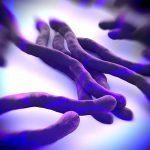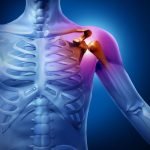Detecting Alzheimer’s in Young Adults
According to a study out of the American Academy of Neurology (AAN) and published in the online journal Neurology, researchers have now developed a genetic risk score system that can help identify those at a higher risk for Alzheimer’s disease long before symptoms appear – even possibly in healthy young adults.
“The stage of Alzheimer’s before symptoms show up is thought to last over a decade,” one researcher said. “Given that current clinical trials are testing whether therapies can slow memory and thinking decline among people at risk for the disease, it is critical to understand the influence of risk factors before symptoms are present.”
In the study, the researchers calculated what is known as a polygenic risk score, gauging whether a particular individual has several high-risk gene variants. The higher the score the worse memory and smaller hippocampus the individual had. The study included 166 people with dementia and 1,026 without and an average age of 75. Some of the specific markers they are looking for in relation to Alzheimer’s disease include memory and thinking decline, clinical progression of the disease and the volume of the hippocampus (the memory center of the brain).
A younger group (between the ages of 18 and 35) of healthy individuals was also tested. For them, the higher risk score was tied to smaller hippocampus volume.
“Our study was small and larger numbers of participants will need to be studied to confirm our findings,” said the researcher. “The goal of this type of research is to help physicians better identify those at high risk of dementia so that future preventative treatments may be used as early as possible.”
This could lead to earlier diagnosis of Alzheimer’s disease in younger adults and help those individuals get a headstart on the disease.
 Razi Berry, Founder and Publisher of Naturopathic Doctor News & Review (ndnr.com) and NaturalPath (thenatpath.com), has spent the last decade as a natural medicine advocate and marketing whiz. She has galvanized and supported the naturopathic community, bringing a higher quality of healthcare to millions of North Americans through her publications. A self-proclaimed health-food junkie and mother of two; she loves all things nature, is obsessed with organic gardening, growing fruit trees (not easy in Phoenix), laughing until she snorts, and homeschooling. She is a little bit crunchy and yes, that is her real name.
Razi Berry, Founder and Publisher of Naturopathic Doctor News & Review (ndnr.com) and NaturalPath (thenatpath.com), has spent the last decade as a natural medicine advocate and marketing whiz. She has galvanized and supported the naturopathic community, bringing a higher quality of healthcare to millions of North Americans through her publications. A self-proclaimed health-food junkie and mother of two; she loves all things nature, is obsessed with organic gardening, growing fruit trees (not easy in Phoenix), laughing until she snorts, and homeschooling. She is a little bit crunchy and yes, that is her real name.










